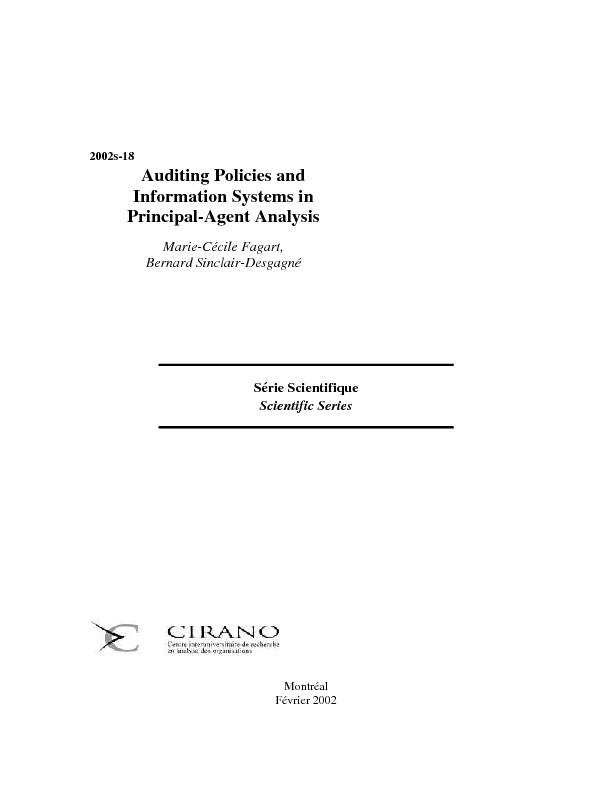Auditing Policies and Information Systems in Principal-Agent Analysis
This paper considers the information systems induced by auditing policies in a principal-agent model with moral hazard. We point out that two such information systems A and B are seldom comparable using the customary mean-preserving spread relation between their respective likelihood ratio distributions. We offer a general extension of this criterion, however, and we use it to show that, provided the sign of the third derivative of the agent's inverse utility function is constant, it is yet often possible to rank A against B because one of the corresponding likelihood ratio distributions dominates the other in the third order. The upshot is that the design of optimal auditing policies involves not only the well-known tradeoff between risk-sharing and incentives, but also an examination of the location of risk.
[ - ]




